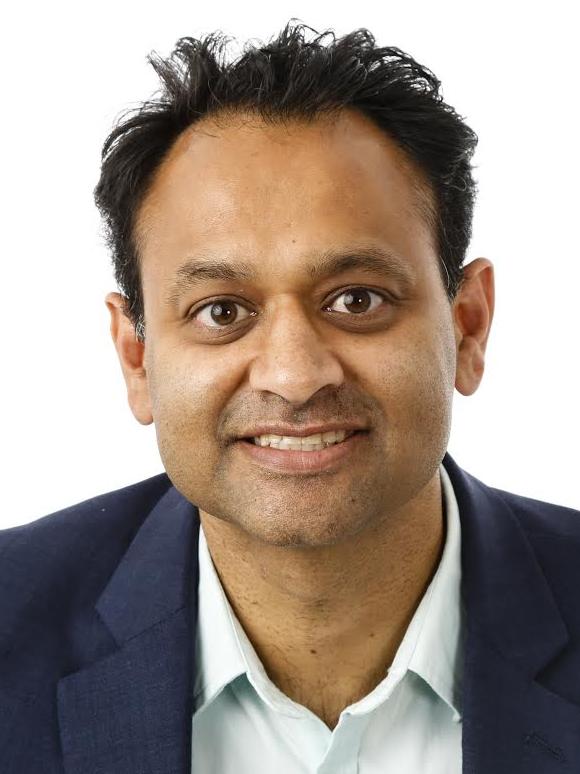The problem with cancel culture: too much cachet
Sometimes careers end for reasons that have nothing to do with cancel culture. Just look at John Hewson.

Cancel culture risks going the same way. When properly used, this term describes a practice that preys on cowardice, breeds anti-intellectual intolerance and metes out a new form of Old Testament punishment that should cause good secularists to gag.
But the problem with cancel culture is it has too much cachet right now.
Those who do the cancelling get a rush of blood to their head, a brief thrill of power and satisfaction from cancelling someone they disagree with. And hopefully some headlines attesting to their power.
On the other side, some people seem to relish the glory and attention that comes from being cancelled, or claiming cancelled status. It signals that someone is important enough to be noticed, to be cancelled. And hopefully some headlines attesting to their importance.
In our escalating marketplace of outrage, the tangle of egos and sometimes dubious motivations make cancel culture hard to navigate.
To be honest, I don’t know why everyone gets so worked up about being cancelled. It’s not all bad news. When it’s not career-ending, it can mean a night off. Personally, I’d be thrilled to find myself, at the last minute, in a long, hot bath at home instead of sprucing up for an event I wish I hadn’t agreed to months earlier. My platform hasn’t been dismantled. I’m still here, having my say.
Sometimes careers end for reasons that have nothing to do with cancel culture. When Nine newspapers axed John Hewson’s column, he tweeted some incoherent nonsense that “neither the Morrison govt nor MSM actually believe in free press not controlled or restricted by govt or their sycophantic mates censorship in political or ideological matters”.
It’s become de rigueur for some to claim or intimate a cancelled status to ease the pain of being criticised or rebuffed. One newspaper editor I know was recently accused of engaging in cancel culture when she didn’t run a dull column. That’s as dumb as claiming that boring sex falls within the #MeToo movement.
Some people have made careers out of cancel culture. Lionel Shriver is known for writing one really great book about a boy called Kevin, and a bunch of average ones. She has reinvented herself as the pursed-lip foe of cancel culture with a column in The Spectator. She’s not wrong to denounce the new Puritanism in the publishing world but it hasn’t hurt Shriver’s career either, admitting earlier this year that she is not “an especially pitiable casualty of this (cancel culture) phenomenon”.
Still, in its purest form, cancel culture is bad for us. As 150 leading authors and academics, including JK Rowling, Salman Rushdie and Noam Chomsky, warned last year in a joint letter, the “free exchange of information and ideas, the lifeblood of a liberal society, is daily becoming more constricted”. It breeds intolerance and stupidity; zealots have in mind an Eden of less informed citizens.
Last week, psychiatrist and commentator Tanveer Ahmed was uninvited from giving a keynote address at the annual Scientific Congress of the Royal Australasian College of Surgeons. He had been invited by college conveners of the medico-legal section of the conference to speak at the event in Brisbane next May.
Then the cancellers stepped in.

It’s worth remembering that cancel culture started out as a means of protest for the less powerful to demand consequences for what powerful people said and did. Witness the inversion. The College of Surgeons is a powerful and privileged body, empowered by the Australian Competition and Consumer Commission as the sole authorising body for all surgeons in Australia, training them and setting exams before they can practice.
Inquirer was told that between 20 to 50 ‘fellows,” as surgeon members call themselves, among a wider membership of 7000, complained about Ahmed for a few reasons. First, for being sacked for plagiarism, including by this newspaper.
Ahmed now writes for The Australian Financial Review, an example that each of us is far more than the worst thing we have done. If that redemptive virtue applies to criminals, why not to a man who plagiarised?
Some College members are also upset about a column Ahmed wrote for The Australian in 2015 where, as a psychiatrist, he explored the cultural factors of domestic violence by men in some migrant communities.
He observed “the huge displacement such men endure from the cleavage of the institutions of family, clan and tradition in less than a generation”. Ahmed wasn’t excusing domestic violence; he was pointing to possible cultural factors that may cause it.
Ahmed says that Mark Ashton, a plastic surgeon who helps oversee the College’s annual Scientific Congress, advised him that the problem was that he had not “renounced” his views on domestic violence. Ahmed says Ashton also expressed concerns about the College’s reputation for being too old white male, and what the media might make of Ahmed’s speaking gig.
Ahmed, who is of Bangladeshi origin, tells Inquirer that Ashton said to him: “What if Leigh Sales rings?”
Contacted by Inquirer this week, Ahmed said: “What does the College of Surgeons want? Do they want me to come out and flay myself and cry out that I never excused domestic violence? It’s ridiculous. I am being cancelled for something I wrote seven years ago and was misrepresented about. It is the job of a psychiatrist to give complex explanations about deviant behaviours. That does not at any stage mean that I am excusing those behaviours.”
Ashton told Inquirer he tried to find a solution and, though he didn’t mention Sales to Inquirer, Ashton expressed concern about social media, and what The Guardian or the ABC would make of Ahmed’s inclusion.
Perhaps Ashton and medical conveners of the conference might have considered what would happen if The Australian exposed how the College succumbed to the irrational, unscientific noise of a small group of members who seem determined to misrepresent and then banish Ahmed.
No one is forcing the audience to agree with Ahmed. If purging him from the keynote platform is not an example of anti-intellectualism and intolerance among a small number of surgeons, it’s hard to know what is.
This is where claims of cancel culture get messy. In a formal response to questions from Inquirer, the College said that it encourages and supports diversity of opinion, which is why Ahmed was offered a panel session instead.
“Given Dr Ahmed’s polarising stance on domestic violence, we believe it was critically important for any scientific session to allow for the presentation of multiple viewpoints.” That offer was rejected by one of the co-conveners of Ahmed’s session, orthopaedic surgeon Ian Dickinson, who is also a former vice-president of the College.
Some College members worry that the College is caving to voices that no longer reflect mainstream voices of surgeons. But as one surgeon told Inquirer this week, “we’re not culture warriors, so we just shrug our shoulders and stay quiet”.
That silence empowers a small irrational mob. After Ahmed’s invitation was withdrawn, those who invited him – Dickinson and Simon Journeaux, another orthopaedic surgeon – resigned as co-conveners of the medico-legal section meeting of the Scientific Congress.
In their letter to current president Sally Langley, they accuse the College of pursuing dogma over reason.
“The College is headed down the same rabbit hole as the universities and appears not to be prepared to stand up for intellectual enquiry, freedom and honesty especially if it were to be questioned by some in the media,” they wrote.
Ahmed’s career is intact. He was offered a different platform at the conference. But the anti-intellectual smear attempt against him by a small group of surgeons is a sign of what Ahmed calls “the steady creep of ‘social justice’ tyranny within the profession”. It dumbs us down, killing curiosity, cleaving to politically correct orthodoxies that survive unless unchallenged. And there is nothing just about it.







Social phenomena are, by their nature, entirely unpredictable. They can start out making eminent sense and end up a garbled mess of contradictions. The #MeToo movement is one of those derailed train rides, capturing everything from sexual abuse and harassment to a bad date.